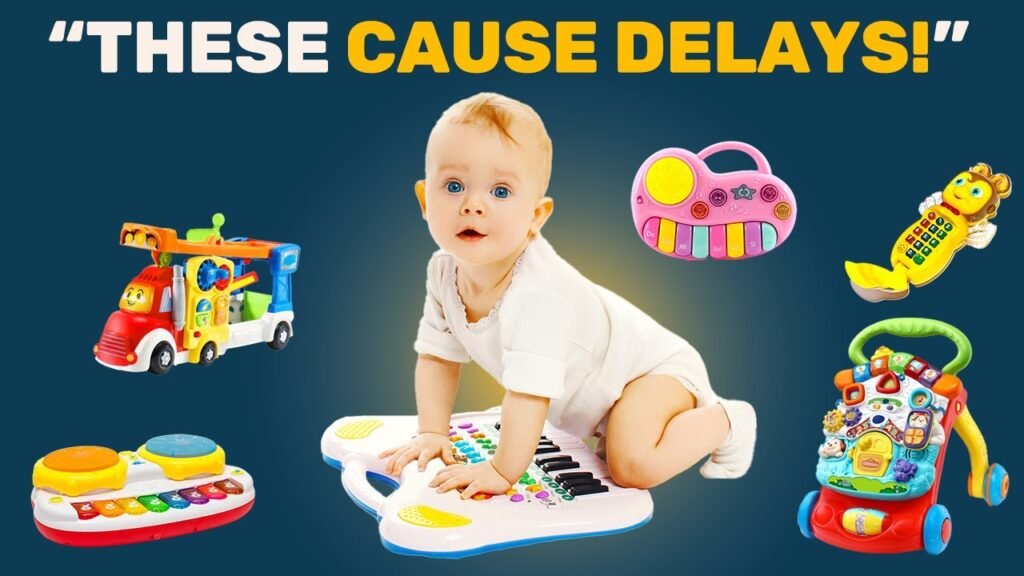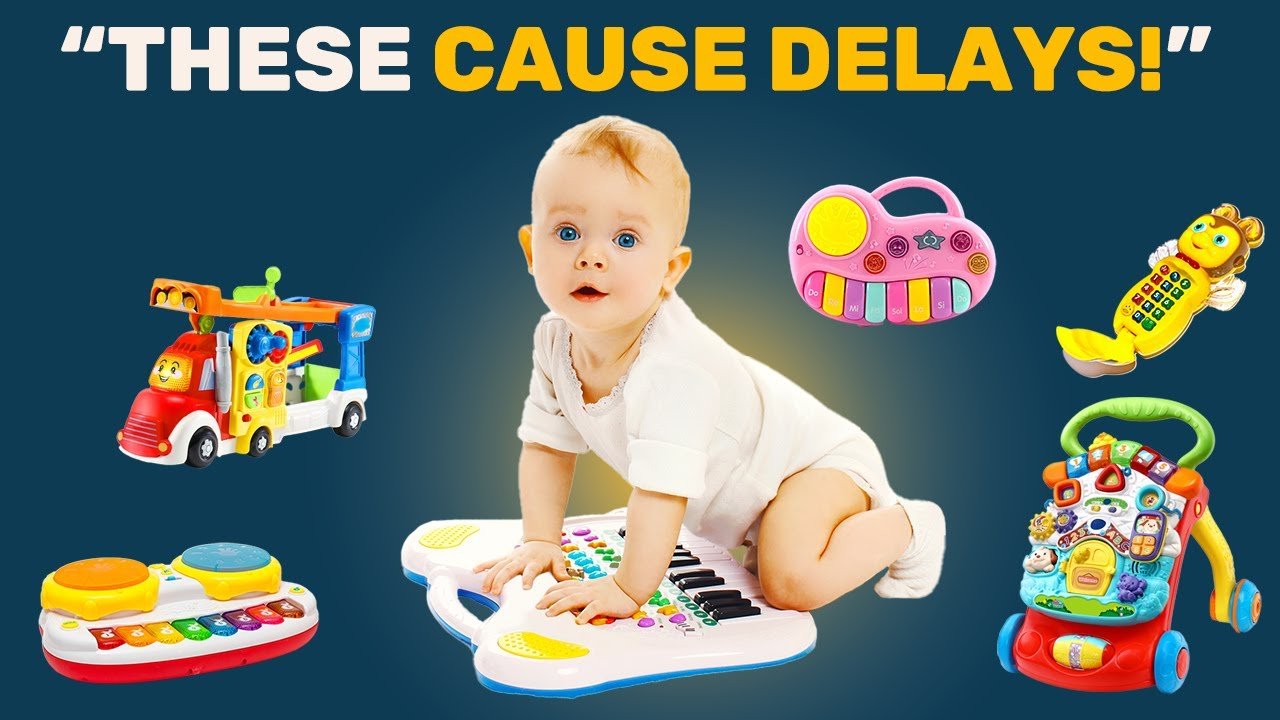“The Impact of Battery Operated Toys on Baby Development” is an article that explores the controversy surrounding the use of battery operated toys for babies. It acknowledges that recent advice warns against using such toys, claiming they can hinder a baby’s development. However, the article also highlights that battery operated toys can have positive effects on visual skills, fine and gross motor skills, and teaching cause and effect. The key, it suggests, is to provide a variety of toys and engage in conversation with the baby while they play with battery operated toys. Moreover, the article emphasizes the importance of offering fewer toys to encourage longer playtimes, enhanced creativity, and better social skill development.
In a video by Emma Hubbard, titled “The Truth About This Trending Baby Toy Advice,” the author delves into the origins of the claim that battery operated toys are detrimental to a baby’s development. She explains that the advice is based on a single study conducted in 2015, which found that parents and babies had less verbal communication when playing with battery operated toys compared to traditional toys and books. While this may raise concerns, Hubbard argues that battery operated toys can offer benefits in terms of visual skills, fine and gross motor skills, and teaching cause and effect. She advises parents to provide a variety of toys, including traditional ones, and engage in conversation with their baby during playtime. Additionally, she suggests having fewer toys to encourage longer playtimes, enhanced creativity, and better social skill development.
The Impact of Battery Operated Toys on Baby Development
Background of the issue
Recently, there has been a trend online suggesting that battery operated toys are detrimental to a baby’s development. This claim is based on a single study conducted by Sosa and her colleagues in 2015. The study found that parents and babies had less verbal communication when playing with battery operated toys compared to traditional toys and books. Since verbal interaction is crucial for language development, some have concluded that battery operated toys might slow the learning process and hinder a baby’s development.
Study conducted by Sosa and colleagues in 2015
The study conducted by Sosa and her colleagues in 2015 involved analyzing audio recordings of 26 parent-baby pairs playing with different types of toys. The toys included battery operated toys, traditional toys (wooden puzzles, shape sorters, and blocks), and board books. The researchers found that when playing with battery operated toys, parents talked less to their babies and there was less back-and-forth conversation. This lack of verbal communication raised concerns about the potential negative impact of battery operated toys on a baby’s development.
Negative implications of battery operated toys on baby development
The findings of the study conducted by Sosa and her colleagues suggest that battery operated toys might inhibit language development in babies. Since direct interaction with people is crucial for language learning, the limited verbal communication observed when playing with these toys could slow down the learning process. However, it is important to note that these negative implications are not inherent to all battery operated toys and depend on how they are used.

Positive effects of battery operated toys on baby development
Despite the concerns raised by the study, battery operated toys can have positive effects on a baby’s development. These toys, with their blinking lights and interactive features, can grab a baby’s attention and promote the development of visual skills. The toys also provide opportunities for practicing fine and gross motor skills, such as reaching, grasping, and tracking movement. Additionally, battery operated toys can teach cause and effect, helping babies understand that their actions lead to specific outcomes.
Providing a variety of toys for holistic development
To promote holistic development, it is important to provide a variety of toys for babies. Battery operated toys can be included in the toy selection, but it is crucial to also incorporate traditional toys, such as blocks, puzzles, and soft toys, as well as sensory books and household items like Tupperware and spoons. Offering a variety of toys facilitates well-rounded skill development and keeps playtime engaging and diverse.
Engaging in conversation while playing with battery operated toys
While playing with battery operated toys may not provide the same level of verbal interaction as traditional toys, parents can still engage in conversation with their babies during playtime. By talking to their babies and narrating their actions and observations, parents can enhance language development even during play with battery operated toys. This back-and-forth interaction is crucial for fostering language skills and maintaining a meaningful connection with the baby.
The importance of having fewer toys
Contrary to the belief that more toys equate to better development, research suggests that having fewer toys can be more beneficial for a child. When children have access to fewer toys, they are more likely to engage in longer playtimes and use their imagination to foster creativity. Having fewer options also encourages children to focus and fully explore each toy, leading to a deeper understanding and appreciation of its features and functions.
Longer playtimes and enhanced creativity
When children have fewer toys, they often engage in longer periods of uninterrupted play. This extended playtime allows them to delve deeper into their imagination, fostering creativity and problem-solving skills. By having fewer toys, children are encouraged to use their creativity to invent new games and scenarios, rather than relying on predetermined features and functions of multiple toys.
Better social skill development
Having fewer toys can also promote better social skill development. When children have a limited number of toys, they are more likely to engage in cooperative play and negotiate with others for access to the toys. This fosters important social skills such as sharing, turn-taking, and conflict resolution. By learning these skills early on, children are better equipped to navigate social interactions and build positive relationships with others.
Conclusion
In conclusion, while the initial study by Sosa and her colleagues suggests that battery operated toys might have negative implications for language development, it is important to consider the broader context. Battery operated toys can have positive effects on visual skills, fine and gross motor skills, and cause-and-effect learning. By providing a variety of toys, engaging in conversation during playtime, and limiting the number of toys, parents can support holistic development and enhance their baby’s learning experience. Ultimately, it is about using battery operated toys in a balanced and interactive way to promote a baby’s overall development.

